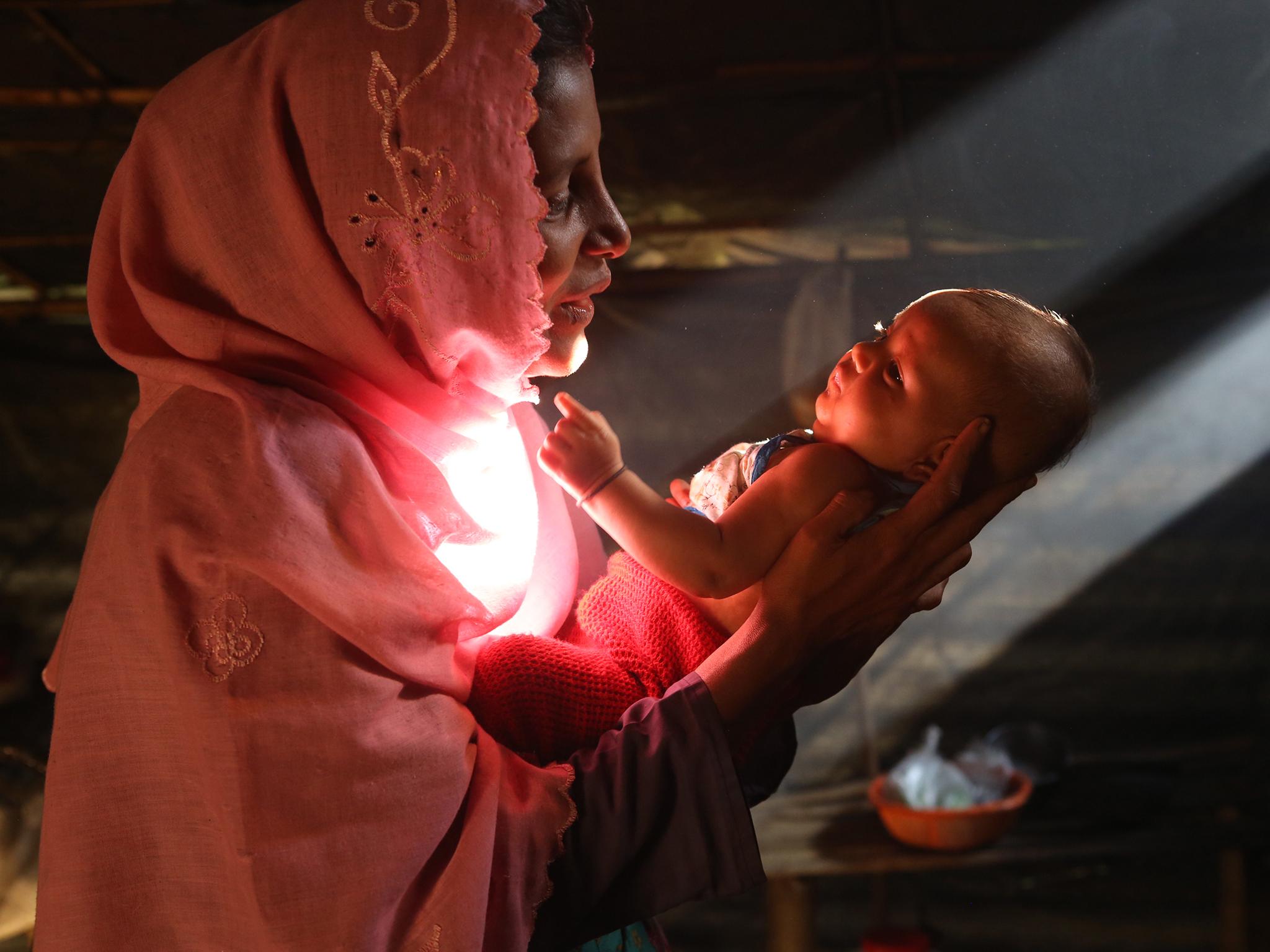Life for Rohingya women, the real and hidden crisis
Behind the headlines in any conflict, women and girls endure sexual violence, loss of livelihood and life-threatening issues with maternal and infant health. Here, leading charities shine a light on the lesser-known struggles of Rohingya refugees

It is now 18 months since the plight of the Rohingya hit the headlines, when the mass exodus of people from Myanmar peaked following an escalation in violence.
Since August 2017, more than 706,000 people, mostly women and children, have fled for safety across the border into Bangladesh. Many had seen family members killed, have been shot, suffered burns or are survivors of sexual violence.
The majority of people arrived in the refugee camps in Cox’s Bazar with nothing, and the trauma of their experiences has had a huge impact on their mental health.
This International Women’s Day some of the UK’s leading international charities, working in the camps of Cox’s Bazar, are putting a spotlight on the situation faced by Rohingya women and girls.
The real and hidden crisis, during and in the aftermath of any conflict, displacement or natural disaster, is that women and girls are disproportionately exposed to sexual violence, increased loss of livelihoods and even their lives. After fleeing violence and discrimination in Myanmar these women and girls are now struggling to cope with the loss and trauma they have experienced, to stay safe in the camps and for basic survival.
Reports of violence in the camps are common; from August 2017 to August 2018 over 10,000 incidents of gender-based violence were reported.
Every day, around the world, 507 women and adolescent girls die from pregnancy and childbirth complications in emergency settings. Maternal and infant health in the camps around Cox’s Bazar is an ongoing concern.
The Disasters Emergency Committee and its member charities, which together raised £30m for the crisis, are supporting women and girls in the camps by providing safe spaces for trauma counselling and providing clean water, hygiene and healthcare.
For more information and details on how you can support these women and girls this International Women’s Day visit dec.org.uk.
*Names have been changed to protect identity
Join our commenting forum
Join thought-provoking conversations, follow other Independent readers and see their replies
Comments
Bookmark popover
Removed from bookmarks